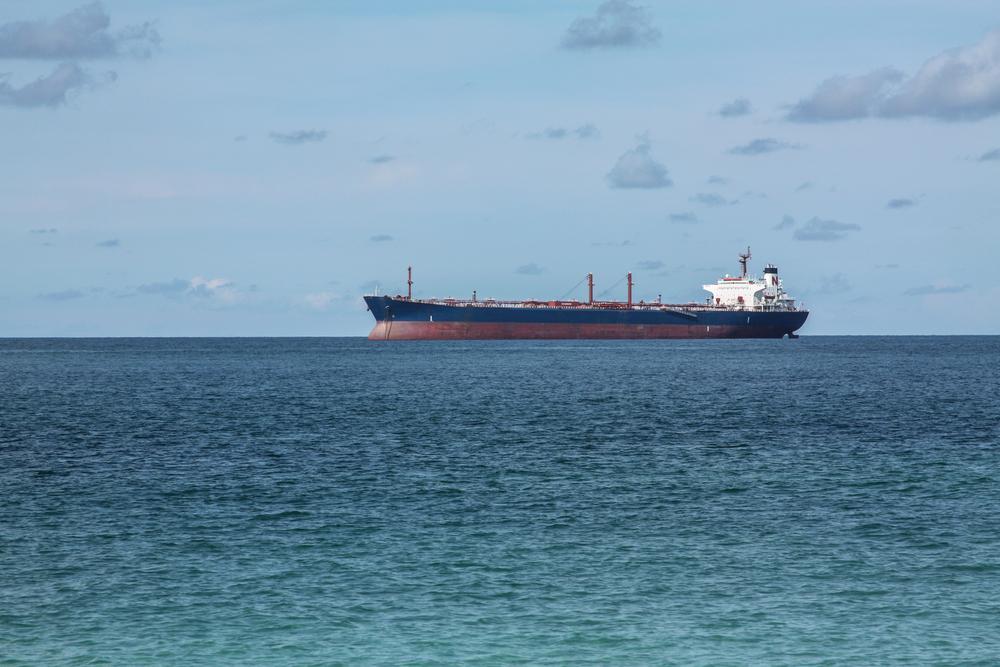In May 2023, the Department of Justice (DOJ) announced Zeus Lines Management S.A., a vessel-operating company, pled guilty to maintaining false and incomplete records relating to the discharge of oily bilge and for failing to report a hazardous condition on board the oil tanker Galissas. The company’s chief engineer, Roberto Cayabyab Penaflor, and Captain Jose Ervin Mahigne Porquez also pled guilty for their roles in those crimes. The defendants are scheduled to be sentenced on August 8, 2023.
According to court documents, Zeus and Penaflor admitted that oily bilge water, which typically contains oil contamination from the operation and cleaning of machinery on the vessel, was illegally dumped from the Galissas into the ocean without being properly processed through required pollution prevention equipment. They also admitted these illegal discharges weren’t recorded in the vessel’s oil record book, as required by law.
Records reflect that “on three separate occasions between November 2021 and February 2022, Penaflor ordered crew members working for him in the engine room to discharge a total of approximately 9,544 gallons of oily bilge water from the vessel’s bilge holding tank directly into the ocean using the vessel’s emergency fire pump, bypassing the vessel’s required pollution prevention equipment,” according to a DOJ press release. “In addition, in preparation for the U.S. Coast Guard’s inspection of the Galissas, Penaflor instructed crew members on several occasions to not tell the Coast Guard about bypassing the pollution prevention equipment resulting in illegal discharges.”
“This prosecution demonstrates our commitment to ensuring the health and safety of the marine environment, and to safeguarding coastal communities against hazardous conditions,” said Assistant Attorney General Todd Kim of the DOJ’s Environment and Natural Resources Division. “The Department of Justice will continue to work with our partner agencies to ensure those who pollute and endanger our coastal communities are held fully accountable.”
While the vessel was in Rotterdam, records show the crew became aware that the vessel’s inert gas system was inoperable. This system ensures oxygen levels in the vessel’s cargo tanks remain at safe levels—at or below 8 percent—and don’t pose a hazardous condition that could lead to an explosion or a fire. Rather than remaining in Rotterdam until the inert gas system could be repaired, Zeus and Porquez’s shore-side management determined the vessel should instead sail to the United States, where a spare part would be delivered upon the vessel’s arrival for the crew to repair the system.
As is required by law, before entry to U.S. waters, Porquez submitted a notice of arrival informing the U.S. Coast Guard of the vessel’s last port of call, its planned arrival in the United States, and the type of cargo on board the vessel. However, Porquez failed to report that a hazardous condition existed.
“On Feb. 19, 2022, the Galissas arrived off the coast of Rhode Island and although the vessel’s crew received and installed the spare part, the inert gas system remained inoperable,” the DOJ press release continues. “The following day, the U.S. Coast Guard measured the oxygen levels within the vessel’s cargo tanks and found levels ranged between 15 and 17%, well beyond the maximum allowable 8%. The Coast Guard then ordered that the vessel be moved further offshore so as to not endanger the port of Newport, Rhode Island.
“Porquez had a logbook created that indicated the cargo tanks were at safe oxygen levels when the vessel left the Netherlands and remained at safe levels during the majority of the vessel’s transit of the Atlantic Ocean. In reality, the crew had not taken any readings of the oxygen levels in the cargo tanks during the vessel’s voyage. Porquez had tasked the vessel’s chief officer with creating this fraudulent logbook that was then presented to the U.S. Coast Guard during its inspection.”
As a result of the investigation, Zeus and Penaflor pleaded guilty to a felony violation of the Act to Prevent Pollution from Ships for failing to accurately maintain the oil record book for the Galissas. Zeus and Porquez also pleaded guilty to a felony violation of the Ports and Waterways Safety Act for failing to report the vessel’s hazardous condition to the U.S. Coast Guard.
Under the terms of the plea agreement, Zeus will pay a total monetary penalty of $2.25 million, consisting of a fine of $1,687,500 and a community service payment of $562,500. The community service payment will go to the National Fish and Wildlife Foundation to fund projects to benefit marine and coastal natural resources located in Rhode Island. Additionally, Zeus will serve a 4-year term of probation, during which any vessels operated by the company and calling on U.S. ports will be required to implement a robust environmental compliance plan.

